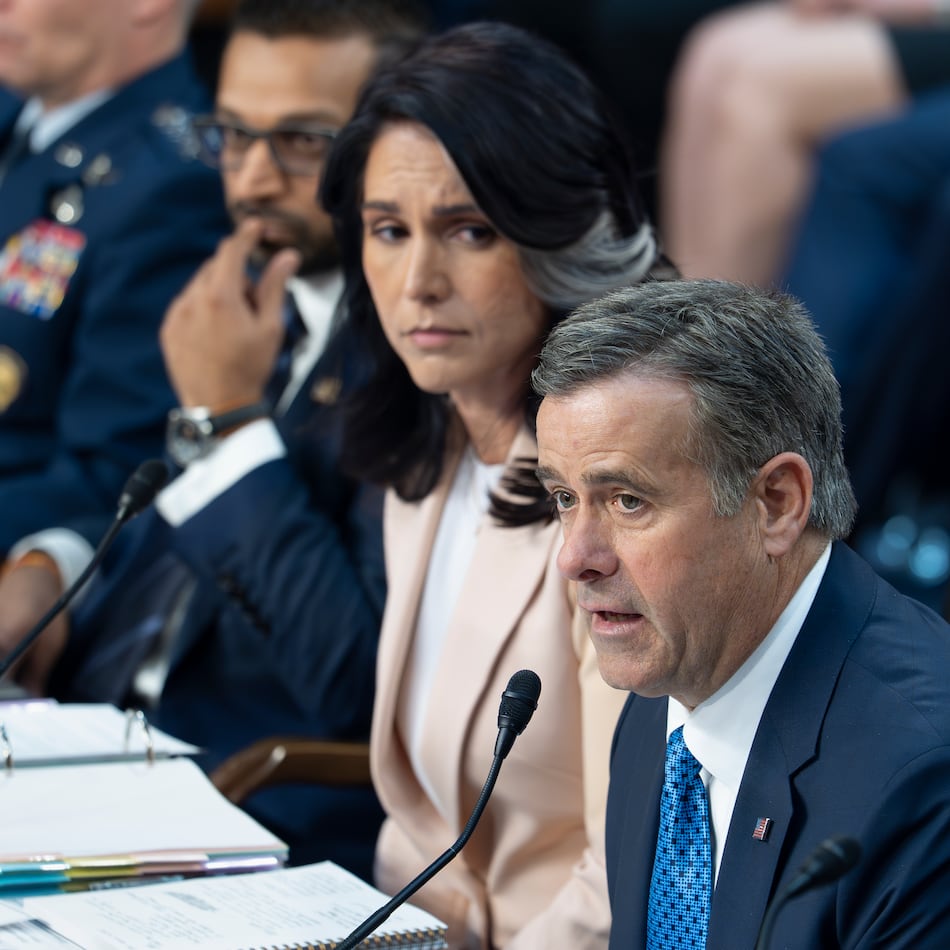This story was originally published by Healthbeat. Sign up for their public health newsletters at healthbeat.org/newsletters.
As a plume of smoke from a chemical fire hangs over metro Atlanta, amid a state of emergency after deadly Hurricane Helene, and in the wake of a Covid surge that hit a new summer high, the Georgia Board of Public Health is absent from the public eye.
For the fifth month in a row, the board on Friday canceled its monthly meeting, which had been planned for Tuesday. No agenda had been posted and no explanation for the cancellation was given.
The nine-member board, which oversees and sets general policy for the Georgia Department of Public Health and its $800 million-plus annual budget, has met just three times this year, most recently in May, canceling seven meetings including October’s.
Georgia’s open meetings law requires boards and other agencies to hold regular meetings but also allows them to cancel and postpone them. Advocates of public health and open government say failing to meet regularly is a bad practice.
“What they’re doing may be legal, but it may not be right,” said Richard T. Griffiths, president emeritus of the Georgia First Amendment Foundation. “These board members agreed to serve and actually work to set general policy for the Department of Public Health to safeguard and promote the health of the people of Georgia.”
It’s an especially important mission given the public health crises facing the state — even beyond those in the daily headlines — including high rates of HIV and infant and maternal mortality, alongside low life expectancy, Griffiths said.
“This board should be explaining to the public the general policy that they’re setting to reverse those terrible trends,” he said.
A lack of regular public meetings hampers transparency and misses critical communication opportunities to the public, said Dr. Harry Heiman, a professor at Georgia State University’s School of Public Health.
“Regardless of the legality, this is lose-lose from an agency perspective,” he said.
On Friday, state Department of Public Health spokesperson Nancy Nydam emailed a statement defending the board’s meeting schedule and members’ work since the beginning of the pandemic.
The board has held training workshops this year in addition to the three meetings, she said, adding that the next board meeting is scheduled for Nov. 12.
“Sometimes, board meetings are canceled due to holidays and unpredictable needs during the legislative session,’’ Nydam said. “There were also situations such as the COVID pandemic when DPH was fully involved at all levels of the pandemic response, particularly during 2020 and 2021, when situations were evolving daily.”
Many other state boards hold quarterly meetings, she said.
“Most Georgians do not rely on board meetings to know how their tax dollars are spent,” Nydam said.
Board met twice at height of pandemic
Board members are appointed by the governor and confirmed by the state Senate; each member serves for three years. The current chairman is Dr. James Curran, a professor of epidemiology at Emory University.
Healthbeat attempted to contact each board member. Most didn’t respond; others declined to comment.
Gregory Lang, chief financial officer of the nonprofit Good Samaritan Health Centers of Gwinnett, joined the board in December. He said he appreciated the concerns, but was too new to answer questions about the board with authority.
“I would like for my role to be more than an FYI listener,” Lang said.
The number of board meetings dropped starting in 2020, amid the height of the COVID-19 pandemic, a Healthbeat analysis of the past decade found. While the board met at least eight times each year prior to the pandemic, it met just twice in 2020 and 2021.
“Can someone please respond with an explanation as to why the Board of Health for the state has not met since May?” state Rep. Rhonda Taylor, a Democrat who represents Conyers, the site of the BioLab chemical fire, told Healthbeat. “We the constituents and the citizens of this great state need an answer. … We need one right away, especially in light of what’s happening right now.”
Board members receive a daily expense allowance and expense reimbursements under Georgia law. So far this year, those have totaled around $4,700, according to a document Healthbeat obtained from the department via open records request.
A representative from the office of Dr. Ben Watson, the Republican chairman of the Georgia Senate’s Health and Human Services committee, said the senator was unable to comment because of “everything going on in the state right now.”
Laura Colbert, executive director of Georgians for a Healthy Future, ticked off many of the things going on right now, including a toxic gas release from the BioLab fire, Hurricane Helene relief, the highest rate of new HIV/AIDs cases in the country, and limited access to Covid vaccines for uninsured Georgians heading into peak respiratory virus season.
“These rankings and statistics seem to suggest we need more public health board meetings, discourse and planning, not less,” Colbert said, adding that the board’s absence highlights a lack of government accountability.
“Public agencies are accountable to the public that they serve … We are open to learning why the decrease in meeting frequency has emerged — perhaps there is a good reason,” Colbert said. “But communicating that reason is important, for good governance and good health.”
Meetings still online; no public comments
When the board has convened, it has discussed a range of topics. The meetings typically included an update from state epidemiologist Dr. Cherie Drenzek about COVID-19, flu and other infectious diseases of concern. Agency staff members typically provide an update on a featured program.
The three board meetings this year have included presentations on bird flu, a multistate lead poisoning outbreak driven by tainted applesauce with cases in Georgia, new regulations for a screening for congenital cytomegalovirus screening in Georgia, a campaign to promote the state’s Women, Infants and Children program, and an effort to recruit more public health employees.
Board members ask questions about these programs and provide feedback, according to meeting minutes and video recordings.
For example, Lang, who headed a clinic in Gwinnett County that served a diverse population, asked about the availability of WIC promotional materials in languages other than English and Spanish, according to the March minutes.
The board meetings also provide an opportunity to discuss legislative and budget developments.
Meetings picked up in 2022 and 2023 but have dropped off again this year.
Since 2020, the meetings have been held virtually. They do not include a public comment period, which is not required under Georgia law.
“The public has to be admitted, but there’s no requirement for public comment … obviously it’s good government practice to allow citizens to address boards for the board members to actually hear from the public that they serve,” Griffiths said.
Healthbeat is a nonprofit news platform reporting on public health from Civic News Company and KFF Health News.
About the Author
Keep Reading
The Latest
Featured


